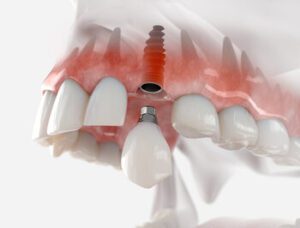If you’ve been looking into dental implant cost in Philippines, prices are exceptionally low compared to what you might pay here in Sydney. With the lure of cheaper prices and a relaxing holiday abroad all rolled into one, why wouldn’t you tempted to jump onto the bandwagon known as ‘dental tourism’?
According to ABC News, around 15,000 of us travel overseas for cosmetic surgeries, including dental implants. For many people, it’s because they can’t afford the cost of dental treatment recommended by their dentist and most of the people who travel are ordinary folk with modest incomes.
So, how much does an implant cost in the Philippines?
It’s only natural that anyone considering the dental implant procedure is concerned about dental implant cost. After all, it doesn’t come cheap. Here in Sydney, for example, a straightforward single dental implant cost ranges from $2850 to $6750 whereas dental implants in Philippines average around 75000 Php which is equivalent to just below $2000. Even considering the cost of an 8.5-hour flight from Sydney to the Philippines the potential savings seem to be significant.
However, while dental implants are cheaper in the Philippines it doesn’t mean that it’s the best option to have your dental treatment there. Before rushing off to book your flight, you might want to consider the risks involved in getting dental implants in the Philippines compared to the advantages of dental implants treatment in Sydney. It’s advisable that you get a consultation at your local dental clinic first.
What are the risks? What could possibly go wrong?
Whether you’re getting dental implants in the Philippines or in Sydney you need to be aware that as with any type of surgery, there are always risk involved. You could pay to visit the top dental surgeon in Australia and still there’s no guarantee that something won’t go wrong.
Standards vary from one country to another
At Dental 266 we strongly recommend anyone considering travelling to the Philippines for dental implants to find out as much as they can about the dental clinic itself, the country’s regulatory body, and the standards of treatment and care that are enforced. We also recommend that you check out the qualifications of the dentist who will be carrying out your treatment and what personal experience they have of placing dental implants.
In Sydney, dental standards are generally very high and dentists placing dental implants need to undergo several years of further training. In addition, surgery is carried out with strict adherence to cleanliness in order to prevent infections from occurring whereas in developing countries such as the Philippines standards of cleanliness may be lower.
Are you rushing into things?

When you visit a Sydney dentist that offers consultation, you’ll be given every opportunity to ask as many questions as you like and receive the relevant answers. You won’t be pressurised into getting dental implants or any other dental treatment, unless you’re ready to go ahead.
With this in mind, are you able to voice your concerns and get your questions answered in a timely fashion from a dentist that’s thousands of miles away? Should you have more questions to ask once you reach the Philippines will your dentist and their assistants speak the same language as you? If they don’t, then this could prove very difficult.
Dental implant cost – Not all implants are equal
At Dental 266 we use well-established top-quality brands of dental implants such as Nobel BioCare. Some dental clinics in the Philippines may be using cheaper dental implants to keep their costs down, which may not have the quality or reliability that the implants we use have. For further information.
Consultation and aftercare
Dental implants usually require several consultations with the dentist that is carrying out the treatment. You will need to book a consultation at your local clinic to have some X-rays and discuss your medical history to ensure that you have enough bone to support dental implants and that you’re fit and well to undergo surgery. During implant surgery dental implants are placed into the jawbone using local anaesthetic to minimise any discomfort or pain.
Our dentists are fully trained in the use of anaesthetics and use only the most modern types. They can also offer help when patients are anxious or nervous. Following the dental implants procedure, you’ll also need to wait for around 12 weeks for the mouth to heal and the implant to stabilise during which time an impression will be taken so that your new dental crown or crowns can be made.
What if something goes wrong after dental implants treatment?
Each of these different stages require a visit to your dental clinic and, if that’s in the Philippines, additional costs of travelling and time off work can soon mount up, wiping away any potential savings. Visiting your local dentist in Sydney isn’t such a problem, particularly if things go wrong with your dental implants.
Whilst many people visit countries such as the Philippines for dental implants and have a successful experience, the biggest disadvantage of getting cheaper dental implants from abroad is the compromised or lack of aftercare. You could be one of the lucky ones, but is it worth putting yourself and your health at risk? For this reason, you might be best staying at home and seeking the services of an experienced dental implant dentist in Sydney.
Don’t let dental implant cost prevent you from having dental implants in Sydney. Most dentists offer a variety of payment methods, including finance to help you spread the cost of your treatment over several months.
If you’re considering dental implants, then why not get in touch with Dental 266. We’re a leading provider of dental implants in Sydney and guarantee our patients the most advanced dental treatments possible. Give us a call today on 02 9051 0600 to book your dental implant consultation.








